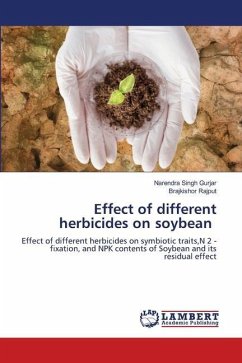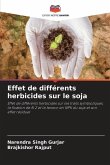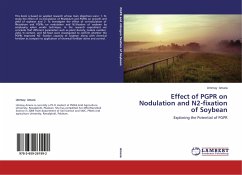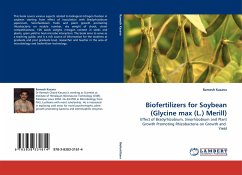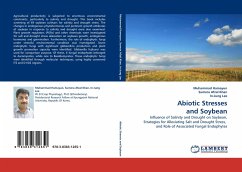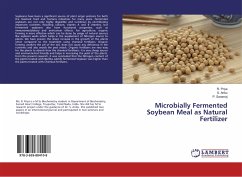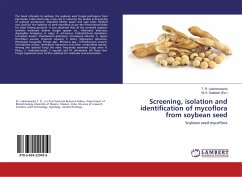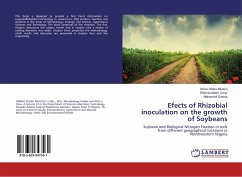Application of quizalofop @ 50 gm/ha, chlorimuron-ethyl @ 9 g / ha andweed free treatments along with Rhizobium inoculation improved the N2-fixation at 55 DAS. The highest nodulation was noted under weed free +Rhizobium inoculation treatment. Seed yield, straw yield and 100 grainweight was increased with the application of herbicides along with Rhizobium inoculation. Higher doses of herbicides (100 gm/ha quizalofop or 18 gm/hachlorimuron-ethyl) did not show any improvement in yield as comparedto lower doses. Maximum seed and straw yield was noted under weed free treatment +Rhizobium inoculation as compared to weedy check. N2 - fixation at 55 DAS was not affected by the application of 50 and 100g/ha quizalofop and 9 and 18 g/ha chlorimuron ethyl. NPK contents and uptake significantly increased in seed and straw with the inoculation of Rhizobium. Application of herbicides had no impact on pH, EC and organic carbon contents of the soil. However, nitrogen content was found significantly higher when used with Rhizobium inoculation. After harvest of the crop, status of available nitrogen, phosphorus and potassium were increased as compared to initial status in most of the treatments.
Bitte wählen Sie Ihr Anliegen aus.
Rechnungen
Retourenschein anfordern
Bestellstatus
Storno

